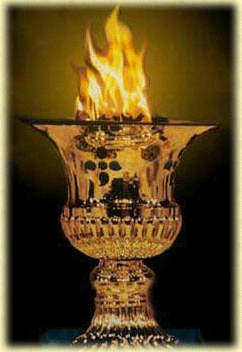A small religious community, which exists mostly in Mumbai, is called Zoroastrianism. The follower of Zoroastrianism is called Parsi, because the religion arrives in India from Persia. This religion was established by Zarathustra in 6th or 7th century BC. The followers of Zoroastrianism were exiled from Iran in the 7th century AD, because of religious persecutions by the Muslims. They arrived in Gujarat region of Nothern India, near to Rajasthan.
The Parsis believe in the existence of one invisible God. They believe that there is a continuous war between the good forces (forces of light) and the evil forces (forces of darkness). The good forces will win if people will do good deeds, think good and speak well. God is represented in their temples through fire, which symbolizes light. The holiest place for Parsis is the village of Udvada in Gujarat. The holy language of the Parsis is an ancient language spoken in Iran, Avesta. The Parsis believe that fire, water, air and earth are pure elements to be preserved and therefore they do not cremate their dead ones, but leave them on high towers, specially built for this purpose, to be eaten by hawks and crows.
The Parsis are less then 0,02% of India’s population, but their contribution to India is much more than their proportion. Some Parsis were main figures in establishing the Indian Nationalist movement. They were the pioneers in establishing the modern Indian industry. The rich Parsi families contributed enormously to establish institutions of all kinds in India. Even today some of the biggest finance houses in India belong to followers of this religion. Ask any stranger about Parsis and the first thing that will come to mind is the Tata family.


 Français
Français
